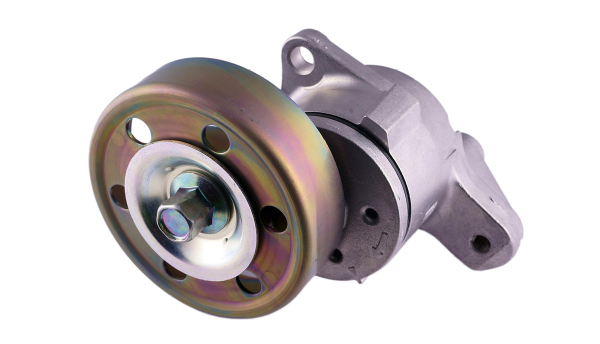
Electromobility or E-Mobility has been one of the loudest buzz-words of the automotive industry for the past couple of years, with almost all automakers now squarely focusing on developing a healthy portfolio of hybrids and electric cars. Naturally, auto component suppliers, too, now have to align themselves to the new aspirations. However, the rapid transition with huge investments into a segment which is still in its infancy, can be fraught with danger and uncertainty, as was seen recently in the case of a German auto component major SHW.
Quality or timeline?
Tesla recently cancelled a major order with SHW, which assembles pumps and engine components as well as brake discs. The size of the order came to nearly USD107 million with the parts destined for Tesla’s upcoming affordable electric car, Model 3. Tesla said that the order was cancelled because the supplier failed to meet its contractual obligations and that it did not want to put the production of Model 3 at risk. Not only did SHW lose the contract, but its shares plunged to a four-month low according to Reuters.
"Tesla's policy is to terminate any supplier that is unable to meet their contractual milestones or violates their non-disclosure agreement. We have to be firm in this regard in order to keep the Model 3 program on schedule and prevent plot spoilers," read a company statement. To be more precise, Tesla was unhappy with the technical specifications for axle-drive pumps which failed to meet its requirements. However, SHW has responded to this reasoning from Tesla by saying that it does not accept it and it has reserved the right to claim damages.
The forthright statement from Tesla is in keeping with the style of CEO Elon Musk, who has reportedly said in the past that he would fire suppliers and reorganize internal teams who fail to meet target dates for production of the upcoming Model 3. In fact, he had already delivered on this promise previously, whenin early 2016, Tesla sued Hoerbiger, the supplier of hydraulic systems for Model X’s ‘Falcon wing’ doors, after the automaker claimed the system was riddled with issues such as overheating, oil leaks, and improper functioning.
“The problem in the latest case does not appear to be the quality level, but failing to meet milestones (according to what Tesla said), with the automaker taking the rather unconventional step to cancel the contract. It is quite rare that an OEM cancels an order for a critical non-commoditized part so close to the start of production,” said Matteo Fini, director, Supplier Solutions at IHS Automotive. “Tesla, which is relatively in its infancy as an OEM and has experienced a few challenges on recent launches, needs to be quite strict if it wants to launch the Model 3 according to its current estimate of late 2017.”
“It is clear that suppliers may occasionally try to win business at all costs, even if the OEM launch schedule is difficult to achieve. The OEM schedule is non-negotiable and the supplier can only work on its commercial terms to take into account the higher level of resources required in order to support that launch schedule,” said Fini.
The all-important Model 3
Model 3 is an important vehicle for Tesla as the success of Model S and Model X has raised people’s expectations of Model 3. According to Tesla, it had received over 400,000 pre-bookings for Model 3 between March 2016, when the car was unveiled, and October 2016. It was clearly more than Musk himself expected. In October, he tweeted that first 12 months of production are sold out and that any car booked from then on will only be delivered by mid-2018 or later, which put the waiting period for the car to over two years. The production of Model 3 is expected to start by mid-2017; deliveries are to begin in North America soon after.
In fact, Tesla has set a target of quadrupling its production to 500,000 electric vehicles by 2018, which is two years ahead of its initial deadline of 2020. Most of these half-a-million cars are expected to be Model 3. In 2016, the electric car maker produced 83,922 units and sold around 76,230.
In addition, many automakers have announced plans to have a significant number of EVs in their portfolio over the next 10 years. Suppliers will have to take into consideration how involved they can be, as e-mobility component development is highly capital intensive. So much so, that even some of the biggest players in the world are not expecting high-returns in the short-to-medium-term. Continental has said that it expects losses from e-mobility product segment until 2019.
At a stage when breaking even in the e-mobility segment is a challenge, contract-related issues, such as the one between SHW and Tesla only add to the complexity for both suppliers and OEMs. The question for Tesla is whether cancelling the order and sourcing the part from another supplier will make the planned timeline still achievable. “Finding a supplier which can industrialize a component which is not a commodity with a quick turnaround is not easy and does not come cheap for the OEM, as the new supplier will have a fair bit of negotiation leverage,” said Fini.








